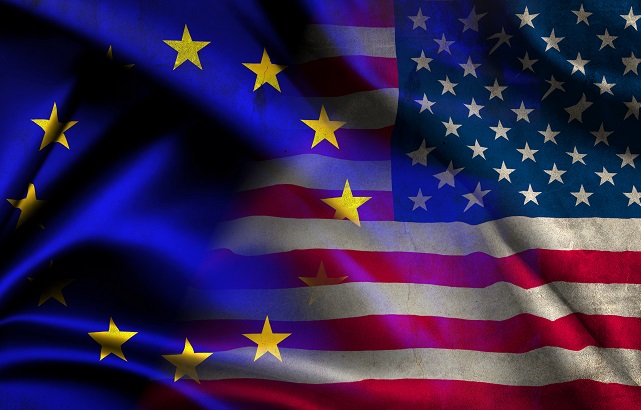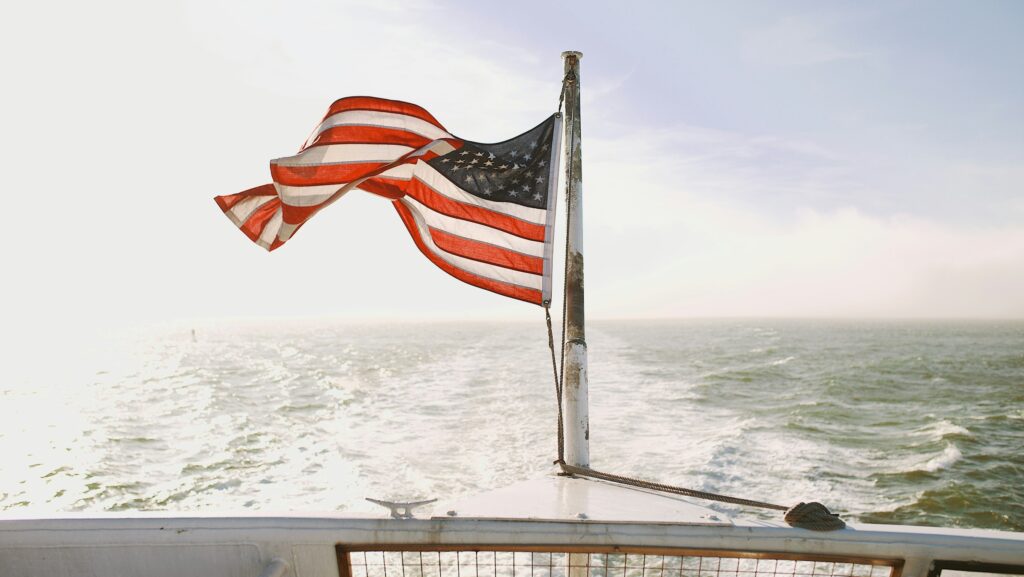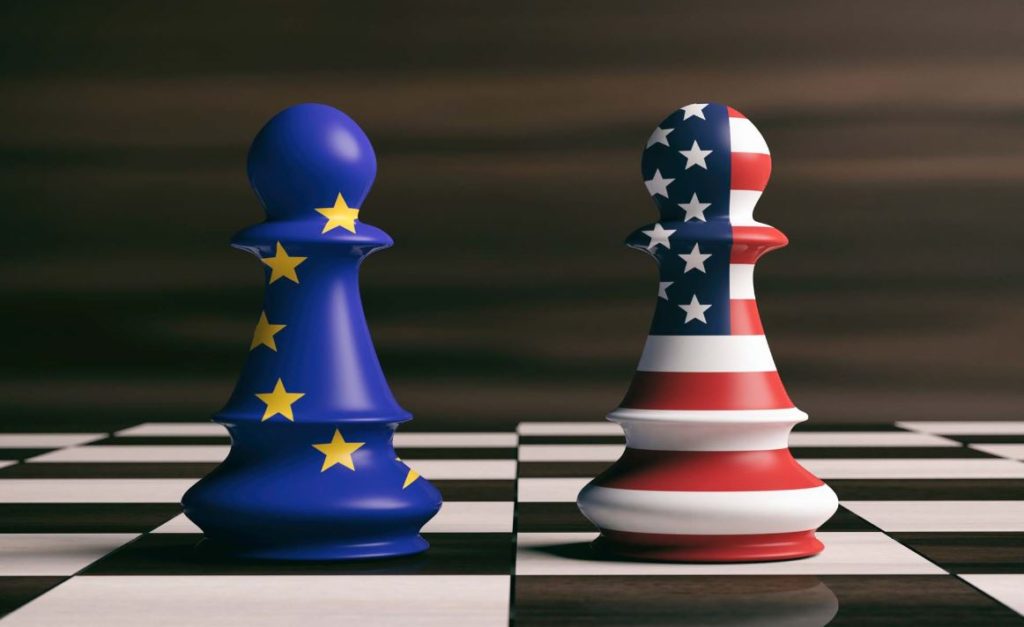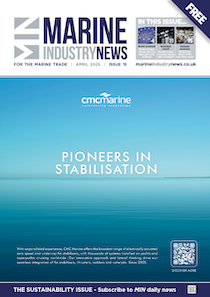New US tariffs shock global economy, but steel and aluminium levies won’t be stacked

Yesterday (2 April 2025), the US government announced a suite of double-digit ‘reciprocal tariffs’ on its global trading partners, including 10 percent levies on the UK and 20 percent tariffs on products from the EU, sending shockwaves across the global economy.
The move, dubbed ‘Liberation Day’ by the Republican administration, has sparked threats of retaliation worldwide, and further intensifies a global trade war that threatens to drive inflation and has stoked fears of recession.
Trump’s new tariffs will significantly affect the economies of many countries with a strong boatbuilding industry, including China – subject to a 34 per cent tariff – and numerous countries in the EU, including Italy, Germany, the Netherlands and France. Trump has previously claimed the 27-country bloc was ‘formed to screw the United States’, and termed the EU ‘pathetic‘ during his speech on Wednesday.
In the hours following the announcement, there was confusion over whether the additional reciprocal tariffs would be stacked on top of the 25 per cent steel and aluminium tariffs announced last month. There have been calls for clarity, with the uncertainty causing challenges for businesses already facing a difficult trading environment. In the past few hours, Bloomberg has reported that steel, aluminium and a long list of other metals won’t be subject to additional ‘reciprocal’ tariffs, meaning they won’t be stacked together, giving some relief to marine businesses worldwide.
Confindustria, Italy’s top business association, has revised downward Italy’s GDP growth forecasts for 2025, now at 0.6 per cent, compared to the government’s earlier estimate of 1.2 per cent.
Trump has claimed that numerous US trading partners have benefited from low US tariff rates while imposing higher duties on American goods. Emerging market economies in Africa, Latin America, South Asia and Southeast Asia are expected to be among the hardest hit, either through targeted levies or an average tariff on goods from certain countries.
The White House states that the new suite of tariffs is based directly on the tariffs charged to the USA by individual countries, including currency manipulation and trade barriers. However, several commentators have observed that these ‘reciprocal’ rates aren’t actually based on actual foreign tariffs but more likely on the USA’s trade deficit with a given country, divided by imports to the US.
The European Boating Industry (EBI), which represents the interests of boatbuilders in Europe, has issued a statement saying it “strongly opposes tariffs and underlines the potential risks to businesses on both sides of the Atlantic and the entire value chain.”
The statement, issued this morning (3 April 2025), continues: “The boating industry is globally integrated, and North America and Europe are the largest markets. Tariffs disrupt businesses, hinder economic growth and jeopardise jobs, particularly for small and medium-sized enterprises (SMEs) that form the backbone of the boating industry.
“We welcome the EU’s objective to reach a negotiated solution with the US and EBI stands ready to contribute with proposals to enhance the recreational boating industry’s mutual success.
“The permanent removal of tariffs would support economic growth, jobs and investment on both sides of the Atlantic. EBI is in constant dialogue with the EU institutions.”
The recreational boating industry across Europe consists of over 32,000 businesses and directly employs more than 280,000 people. Over 96 per cent of businesses in the sector are SMEs.
Within hours of the US administration imposing 25 per cent tariffs on steel and aluminum imports in March, the EU had confirmed plans to impose its own duties on €26bn ($28.3bn) worth of American goods, including boats.
The implementation has been paused for two weeks until mid-April in an attempt to open the door for further discussion between the United States and the European Union.
Manufacturers and tariffs
Not all boat makers are feeling negative about the news, however, Twin Vee PowerCats CEO and president Joseph Visconti tells MIN he is welcoming the trade tariffs.
In an interview last month, Visconti said he believes trade tariffs are an incredibly positive and necessary tool for strengthening American manufacturing and securing the long-term economic health of the United States of America. While some short-term adjustments may be required, he argues, the long-term benefits far outweigh the temporary challenges.
In a statement, NMMA says it has “consistently urged the administration to take a targeted, nuanced approach to trade enforcement — one that strengthens America’s position globally while avoiding harm to domestic producers.”
It adds: “The recreational boating industry is a proudly made in America industry that supports more than 812,000 American jobs and generates $230bn in annual economic impact.”













